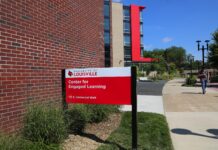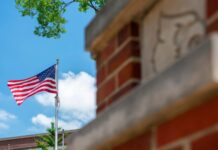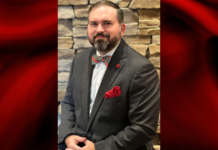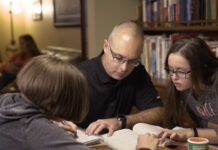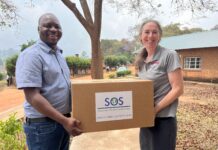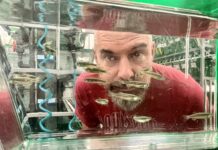
Across the University of Louisville, researchers and innovators are creating groundbreaking technologies that can improve the way we work and live. They were recognized for those contributions at the inaugural EPIC Innovation Awards, held Oct. 30.
“Innovation is absolutely critical to the University of Louisville’s mission,” said UofL President, Neeli Bendapudi. “It’s what drives us, inspires us, and it’s a big part of what makes us a great place to learn, work and invest — our three most important goals as a university.”
The event, hosted by the Office of the Executive Vice President for Research and Innovation and the Commercialization EPI-Center, honored UofL innovators who had recently been awarded a patent or whose technology had been licensed to a company for commercialization.
“Our researchers and innovators do tremendous work with the power to change and improve lives,” said Allen Morris, executive director of the Commercialization EPI-Center, formerly the Office of Technology Transfer. “That’s what this event is about — celebrating them, and the work they do.”
Two large awards were also presented: Susan Ildstad was given the Innovator of the Year Award and John O. Trent was given the Career Impact Award. Each took home a red-and-black glass flame — the symbol for the event.
Ildstad’s company, Talaris, recently secured some $100 million from investors to develop a therapy invented at UofL that could improve the lives of kidney transplant recipients. The technology, which just entered its phase three clinical trials, could allow living donor kidney transplant recipients to stay off immunosuppression drugs, which they would otherwise need for the rest of their lives.
Likewise, Trent has a long a history of collaborating on technologies, particularly in the area of cancer therapeutics. Some of his notable inventions include AS1411, novel PFK inhibitors for fighting the spread of cancer and his natural product hand cream for DNA repair, now licensed to and in clinical development by Repairogen.
Robert S. Keynton, interim executive vice president for Research and Innovation, said this year has been a good one for innovation at UofL. In 2019, he said, UofL saw more research disclosures of new innovations, more commercialization deals and more innovation income.
Keynton also noted several success stories that had gained attention over the past year: One team, he said, developed a new method of freeze drying blood, extending its shelf life for the battlefield, rural areas and even space travel. Another team developed a way to break down and recycle vulcanized rubber, which could have huge impacts for our environment. And yet another is helping people paralyzed by spinal cord injuries learn to walk again.
“The work you do is significant,” he said. “The work you do is important. The work you do has impact. And I’m proud to be part of it, both as the Interim EVPRI and as an inventor myself.”
Check out some of our innovators:









